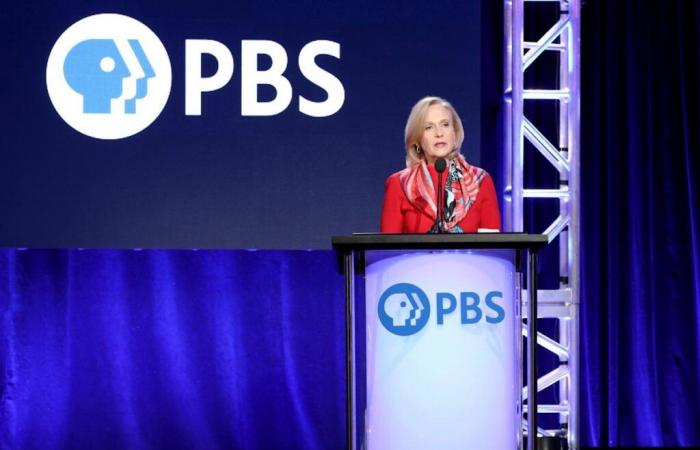The Director of the Public United States broadcasting service (PBS) said Friday that the executive order of President Donald Trump, which seeks to cut public subsidies to the PBS and the national public radio (NPR), is flagrantly illegal.
The CEO of the PBS, Paula Kerger, said that the order of the Republican President “threatens our ability to serve the American public with educational programming, as we have done for more than 50 years.”
“We currently explore all the options to allow the PBS to continue serving our member stations and all Americans,” Kerger said.
Trump signed the order on Thursday night, claiming “bias” in the media reports.
The order requires that the Corporation for Public Radiodice (CBP) and other federal agencies “cease federal financing” for PBS and the NPR, in addition to requiring that they work to eradicate indirect sources of public financing for news organizations. In a publication made on social networks to announce the firm, the White House said the media “receive millions of taxpayers to disseminate radical propaganda and Woke disguised as ‘news’.”
The CBP, which channels public funds to both services, said it is not a federal executive agency subject to Trump’s orders. Earlier this week, the president said he would fire three of the remaining five members of the Board of that agency, which puts at risk his ability to carry out any work, and was immediately sued by the CPB to avoid it.
The vast majority of public money for services goes directly to their hundreds of local stations, which operate with a combination of government financing, donations and philanthropic subsidies. The smallest market stations depend particularly on public money and are the most threatened by the cuts proposed by Trump.
In the past, public broadcasting has been frequently threatened by Republican leaders, but local links have allowed him to escape cuts: legislators do not want to be seen as responsible for closing stations in their districts. However, the current threat is considered the most serious in the history of the system.
It is also Trump’s most recent measure and his government to use federal powers to control or hinder institutions whose actions or points of view does not share.
Since he assumed the position in January for a second term, Trump has dismissed leaders, has put the administrative license personnel and has cut hundreds of millions of dollars in financing to artists, libraries, museums, theaters and others, through the taking of control of the John F. Kennedy center for the performing arts and the National Fund for the Humanities. The president has also pressed to retain federal research and education funds from universities and punish law firms unless they agree to eliminate diversity programs and other measures that he considers objectable.
Only two weeks ago, the White House said it would ask the Congress to terminate the financing for the CPB as part of a package of cuts of 9,100 million dollars. However, that package, which, according to Budget Director Russell Vought, would probably be the first of several, has not yet been sent to the Capitol.
The actions against the PBS and the NPR are produced while the Trump government works to dismantle the United States Global Media Agency, which includes Voice of America and Radio Free Europe/Radio Liberty, designed to model the collection of independent news worldwide in societies that restrict the press.
These measures have faced the resistance of the federal courts, which have ruled in some cases that the Trump government could have exceeded their authority by retaining funds to the media by Congress.
___
The AP correspondent in Congress, Lisa Mascaro, contributed to this office.
___
This story was translated from English by an AP editor with the help of a generative artificial intelligence tool.






